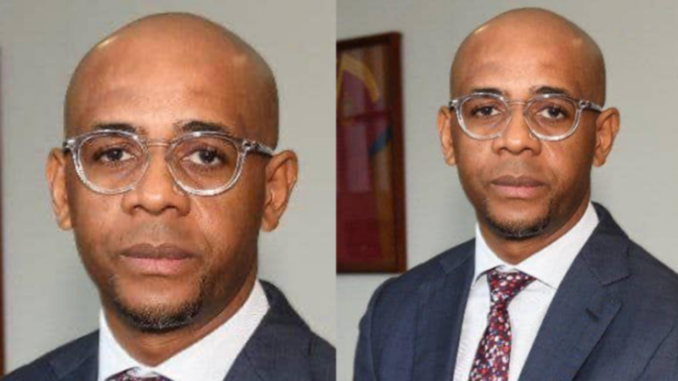
Equatorial Guinea’s First Lady, Constancia Mangue Obiang, has broken her silence regarding the explosive scandal involving Baltasar Engonga, the former Director General of the National Financial Investigation Agency (ANIF), who was recently embroiled in a controversy over the leak of over 400 compromising audio tapes. These tapes reportedly show Engonga in intimate and compromising situations with several women, some of whom are alleged to be the wives and relatives of prominent public figures in the country.
In response to the scandal, which has sent shockwaves throughout the nation, the Equatorial Guinean government acted swiftly, dismissing Engonga from his position and launching a broader review of privacy protections across the country. The tapes’ leak has raised serious concerns about digital exploitation and privacy violations, particularly in a nation where the role of high-profile individuals is often closely scrutinized.
The First Lady, speaking through her official Press Office (Ofiprensa Primera Dama), strongly condemned the incident and expressed her deep concern over the impact it has had on the reputation and dignity of the individuals involved, particularly women. “The government will not tolerate actions that undermine the dignity of our citizens, especially our women,” Mrs. Obiang stated in her statement, signaling her commitment to upholding the values of privacy and respect for all citizens in the face of growing digital vulnerabilities.
Mrs. Obiang further elaborated on the importance of legal reforms to protect citizens from digital exploitation. She stressed the necessity of a robust legal framework to prevent such incidents from occurring in the future, underscoring that the country’s laws must evolve to address emerging threats in the digital age. “While we have made progress in advancing gender equality in our country, this scandal underscores the need for stronger protections and preventive measures to ensure all citizens, especially women, are safe from digital exploitation,” she said.
Prime Minister Osa Nsue, who coordinates administrative affairs in the government, also weighed in on the matter, offering his full support for the First Lady’s stance. He assured the public that the government was taking immediate steps to address the privacy violation and was prioritizing the protection of the safety and dignity of Equatorial Guinea’s citizens. “This is a national priority for us,” Prime Minister Nsue remarked. “We are committed to ensuring that such incidents are never repeated and that all citizens, particularly women, feel safe and respected in our country.”
In the wake of the scandal, the Equatorial Guinean government has pledged to introduce stricter privacy protections to safeguard against digital violations. The authorities have emphasized that new measures will focus on regulating the use of digital content and ensuring that citizens’ personal lives are not exposed or exploited without their consent. These reforms are expected to be part of a broader effort to modernize the country’s legal and regulatory systems to keep pace with the challenges of the digital era.
The government’s response has been swift, but it remains to be seen how effective these new measures will be in addressing the underlying issues of digital privacy and exploitation. Observers have noted that while the scandal has sparked public outrage, it has also highlighted the need for a broader conversation about gender equality and the protection of women’s rights in Equatorial Guinea.
The leaked tapes have already caused significant damage to the reputations of the individuals involved, and the public is now calling for greater accountability and transparency in how such cases are handled. Many believe that this scandal could serve as a catalyst for reform, particularly in areas related to privacy laws and gender-based exploitation.
The government’s commitment to protecting women’s dignity has resonated widely, with many applauding the First Lady’s firm stance. Mrs. Obiang’s outspoken condemnation of the incident has reinforced her reputation as an advocate for women’s rights in the country. As the legal and social implications of the scandal continue to unfold, her leadership will be critical in guiding the nation toward meaningful change.
While the scandal has cast a shadow over the public trust in certain institutions, it has also prompted a broader societal dialogue about the need to safeguard privacy and protect individuals from the dangers of digital exploitation. The First Lady’s remarks suggest that Equatorial Guinea is taking these concerns seriously, and that more decisive action will follow in the coming months to address the digital vulnerabilities exposed by this troubling incident.